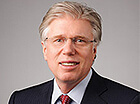You may contact Peter Funk at 646-597-6284.
A review of contractual provisions concerning events beyond a party's control
NEW YORK, NY (April 24, 2018) — Energy attorney Peter V.K. Funk, Jr. presented a program, Force Majeure Provisions in Energy Contracts, hosted by the New York Association of Realty Managers (NYARM) in New York City for building owners, coop and condo building boards, building enegineers and landlords.
He covered drafting of energy contracts and interpretation of force majeure clauses designed to address excuse of performance by a party prevented from complying with contractual terms by an event beyond its control in cases of commercial impracticability.
He reviewed examples, such as an international crisis causing interruption of shipping lanes — which happened in, e.g., 1956 (blockade of the Suez Canal by Egypt following attack by Britain, France and Israel) — and a domestic crisis causing disruption of local commerce (1996 strike by SEIU 32BJ building workers in New York City and the same type of strike threatened in April 2018). Under such circumstances, a purchaser may get a notice from a supplier stating that it cannot deliver or it is allocating limited supplies among customers, or that an immediate price hike is forthcoming.
In any of those or similar cases, every recipient of such a notice should immediately check:
(1) its contract — to find whether the seller has the right to take that action; and
(2) its contracts with its customers (if applicable, e.g., for a middleman such as an ESCO or oil distributor) — to see if it will be able to meet its obligations.
Even if there is not a force majeure provision in the contract/s, contractual parties may be protected by common law or the Uniform Commercial Code (UCC).
When a force majeure clause is used, Mr. Funk discussed the need for specificity as to events covered. Most force majeure clauses typically excuse performance in the event of war, natural disasters, or events beyond a party’s control — but will that language permit a seller to fail to deliver, or to deliver less than the contract requires or to raise the price? In other words, will the contract language excuse performance?
Mr. Funk discussed the doctrines of impossibility of performance and commercial impracticability, as well as the UCC, and focused on excuse from performance based on economic reasons: in the early 1970s, the Organization of Petroleum Exporting Countries (OPEC) curtailed oil supplies causing gas shortages and surging oil prices. A gas and electric company in New York State had been purchasing oil as power plant fuel from a major oil supplier at $2/barrel pursuant to a fixed-price contract. As prices rose to above $10/barrel, the supplier turned to the force majeure provision in the contract in an effort to raise the price. However, the force majeure clause did not mention an economic event that would trigger the clause.
The utility could not negotiate the price because, as a utility, it had a statutory duty to the public to charge reasonable rates as permitted by law, i.e., rates set in the last rate case. Faced with huge financial losses if it continued to supply oil far below its costs, the supplier sought — and obtained — a court order requiring the purchasing utility to pay the increased prices. The court’s decision was based on commercial impracticability. The utility was able to invoke a fuel-adjustment clause (FAC) in its tariff, which permitted it to raise its prices for electricity to reflect the increased cost of oil.
Commercial customers then brought a legal action against the utility seeking to prevent implementation of the FAC and limiting the cost of electric power to that authorized by its most recent rate case. The court ruled in favor of the utility inasmuch as the FAC was lawfully approved for inclusion in the tariff. And, in addition, the court found that requiring the utility to provide electricity below the cost of production would imperil the utility’s ability to fulfill its statutory duty of providing reliable power to its customers.
History may be repeating itself, this time by tweet. President Trump, not generally an enemy of the fossil fuels industry, recently took OPEC to task for the recent surge in oil prices. The price of a barrel of oil has climbed toward $70/barrel in the past few weeks, the highest in more than 3 years. President Trump tweeted: “Looks like OPEC is at it again. Oil prices are artificially very high! No good and will not be accepted.”
Force majeure clauses, although generally considered “boilerplate” in contracts, are very important and must be worded carefully so as to protect the parties and not override common law or UCC protections.
For more information on force majeure clauses, please contact Peter Funk.
Peter Funk is an energy attorney whose energy and utility practice encompasses comprehensive handling of renewable energy, cogeneration and energy conservation, energy efficiency and demand response projects. Engagements have included private and public on-site cogeneration, intervention in utility rate cases, representing parties before the NYS Public Service Commission and handling disputes with utilities; metering, energy management, energy storage and data centers as well as solar, biomass and biogas installations, waste-to-energy and the financing of energy projects.
Funk is co-founder of the energy law boutique Funk & Zeifer LLP based in New York City.

